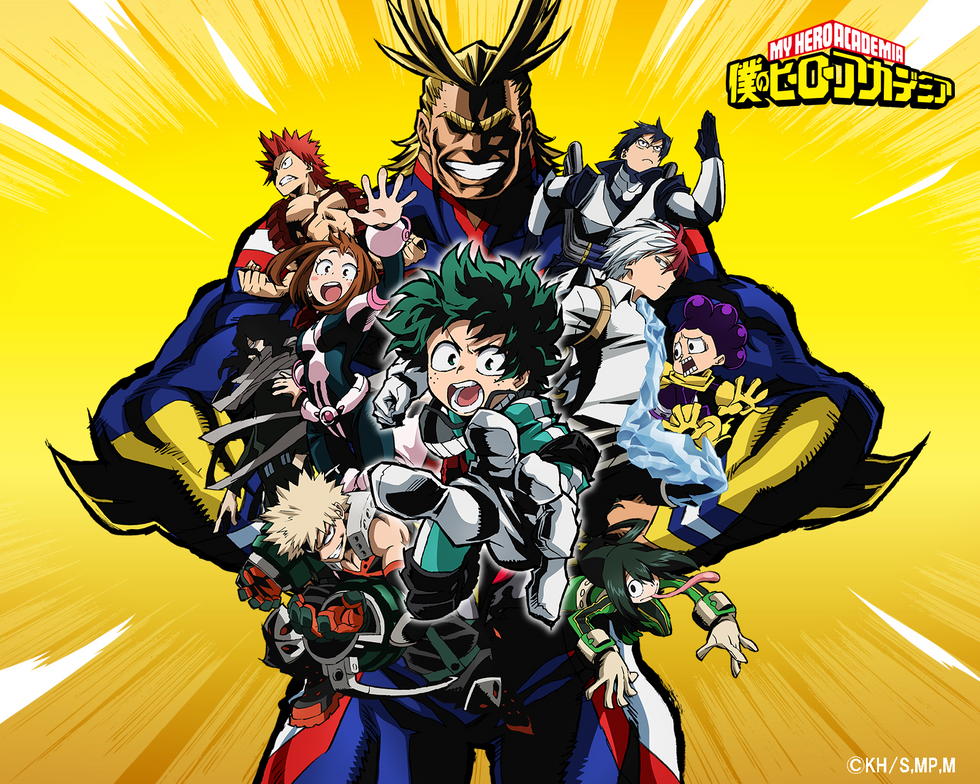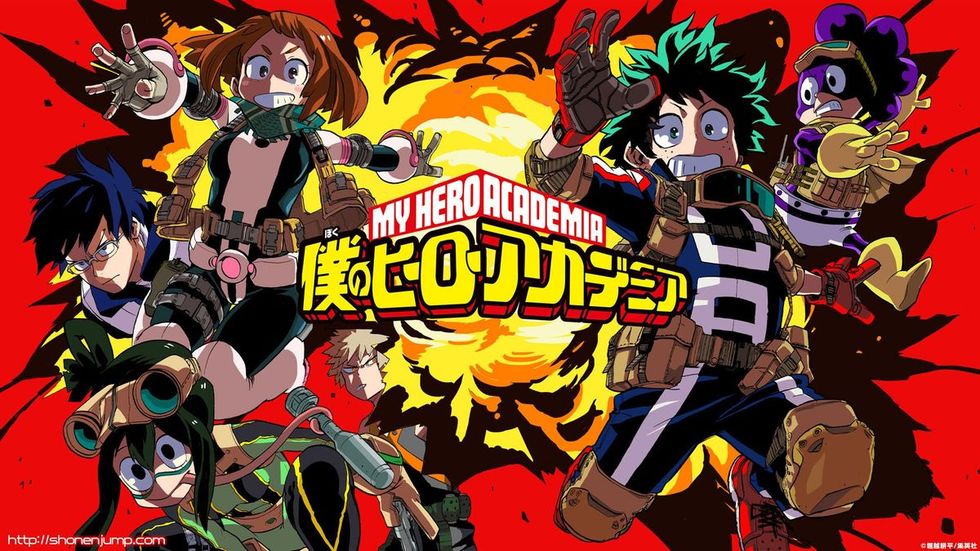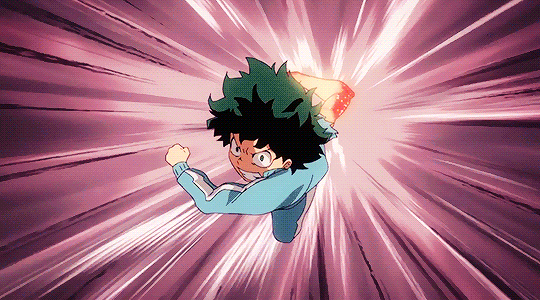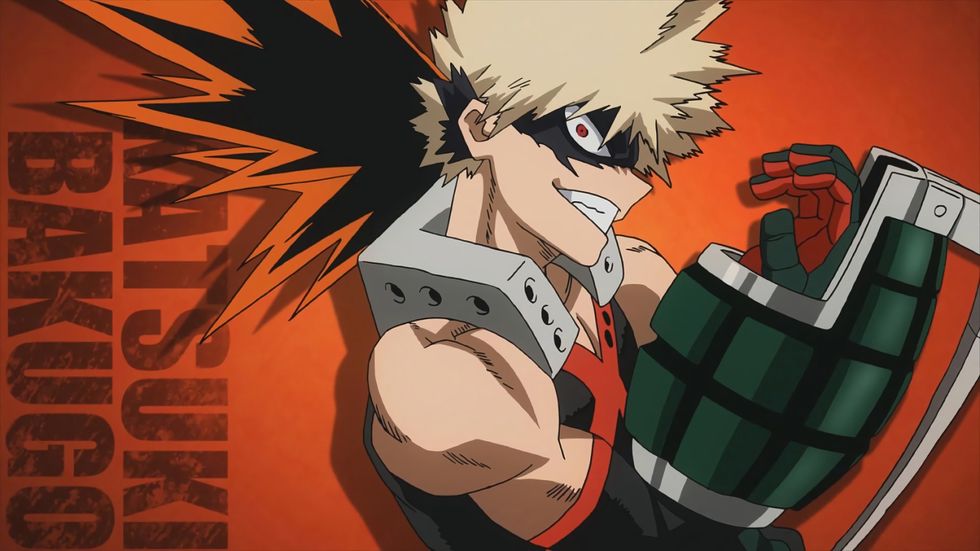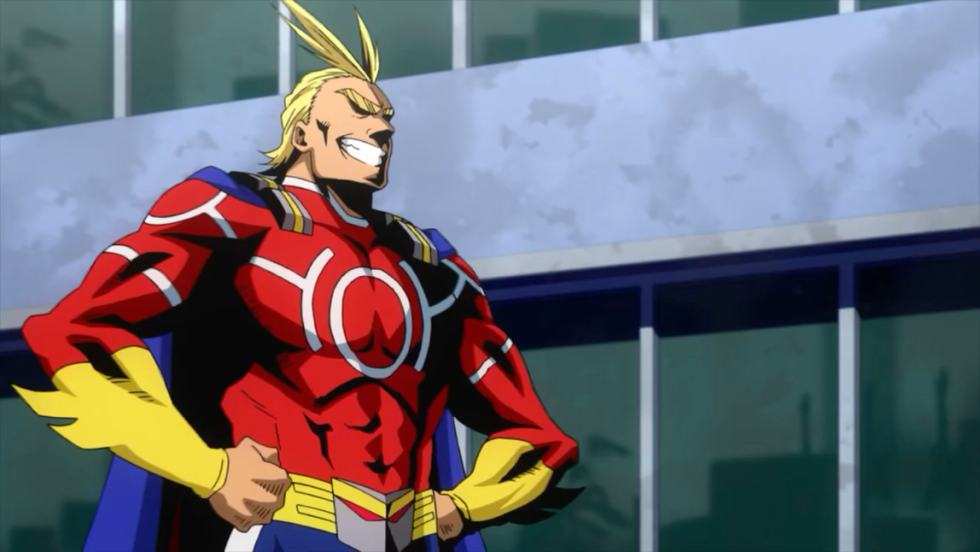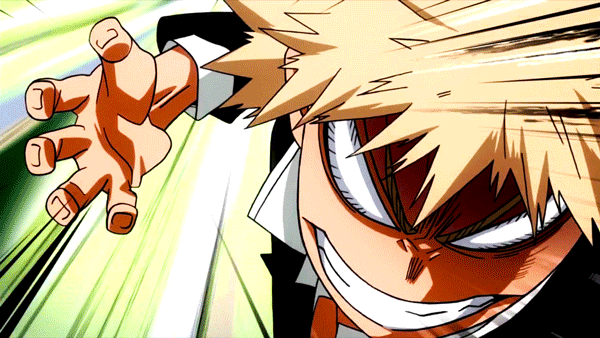Oh, Shonen Jump. Fans have been holding their breath as we all await the end of an era, one that was great as it was inevitable. Many anime fans, myself included, grew up with many of the beloved series that helped push anime into international fame. With the completion of the two of the”Big Three” manga—Naruto and Bleach, with One Piece still sailing away with no end in sight—people are wondering what the future be like for Shonen Jump. With the legacy that was left behind, how will the new generation of shonen manga and anime stand out from the crowd?
“But it's fine now. Why? Because I am here!”
Boku no Hero Academia, otherwise known as My Hero Academia, is an anime produced by Studio Bones and released in the spring of 2016. The manga began publishing not long ago either, released by Shonen Jump in mid 2014.
My Hero Academia takes the common superhero elements found in comic books and runs with them. Superheroes are now commonplace, with most of the population having some sort of powers, called “Quirks.” Naturally, the increase in supernatural abilities causes a rise in crime. Thus, society has embraced the idea of superheroes and promotes it, all for the greater good of the world and to combat evil.
But fate can be cruel and strange. Izuku Midoriya is a kid who was dealt an unlucky hand—he was born without a Quirk. Despite this, Izuku continues to aspire to become a hero one day. And after a chance encounter with the world's greatest hero, Izuku's life begins to change. His determination and courage catches the eye of All Might, who decides to take Izuku under his tutelage and passes his Quirk onto to him.
The cast is an interesting bunch, each with their own quirks (pun intended). The cast is also quite a large one, but the central focus is on the life of Izuku and his growth. Before Izuku gained All Might's power, he was always looked down upon by his peers. All the bullying and the jeers resulted in him becoming somewhat meek and timid. But Izuku's unyielding desire to become a hero and his major hero fanboy status led him to hone his skills of observation and analysis. Eventually, as he learns how to use his newfound Quirk, he starts to gain more confidence and take on more leadership roles.
On the other hand, Izuku's childhood rival and bully—Katsuki Bakugou—was born incredibly gifted. From a young age, Bakugou was constantly praised for his extremely powerful Explosion Quirk and his talent in fighting. All that contributed to his inflated ego and his blatant superiority complex. Topped off with his aggressive personality, Bakugou is Izuku's complete opposite.
All Might is the very symbol of hope and peace thanks to his unique Quirk, One For All. He is basically a parody of classic American superheroes: optimistic, candid, and devoted to upholding justice. Even his attacks are named after U.S. States, like his Texas Smash and Detroit Smash. But after a severe, life-threatening injury several years prior to meeting Izuku, his true form is actually an skinny, lanky man prone to coughing up blood due to having repeated surgeries. One of the main reasons why All Might decides to tutor Izuku is to pass on the torch is because he knows that his days as the “Symbol of Peace” are numbered.
Since being a superhero is basically a career, you can expect it to be a very competitive field. Students like Izuku and Bakugou train to become professional heroes like All Might. They have to learn how to stand tall on their own two feet and to become the best that they can be. Maybe you want to be a hero to help others. Maybe its for the fame and glory. Or maybe it's just to have a stable, well-paying job. No matter the reason behind the heroics, My Hero Academia sheds a new light on the typical hero perspective.
Visually, My Hero Academia sports a very dynamic and sharp look. It is by no means hard on the eyes since Studio Bones took care to make that the scenes flow smoothly. The designs have a noticeable American comic book style influence that combines well with the manga/anime style.
The most glaring flaw in this otherwise wonderful anime is its slow pacing. Since this is a manga adaptation, the anime takes a while to progress forward. The first season is only 13 episodes, having animated about 20-30 chapters of the manga, but for many it may feel like it's taking too long for something substantial to happen. With the large cast of characters, many individuals are introduced and given some screentime, but not enough to develop them fully. Thankfully, there's a second season to help remedy that. But even if you're not strapped in for the long haul, the first season is solid enough to watch alone.
My Hero Academia is a treat to watch. It's a fun twist on the superhero narrative with a straightforward plot. The animation is top-notch and energetic. There are plenty of characters with cool and inventive powers. The series dives into everyone's childhood dream of being a hero and executes it well. However, the fact that the first season is used to set up for future installments can make the plot feel like it's just being dragged on. If you're looking for a bit of excitement to spice up your life or need a healthy dose of shonen anime, then My Hero Academia might be just what you need.
Plus Ultra!

